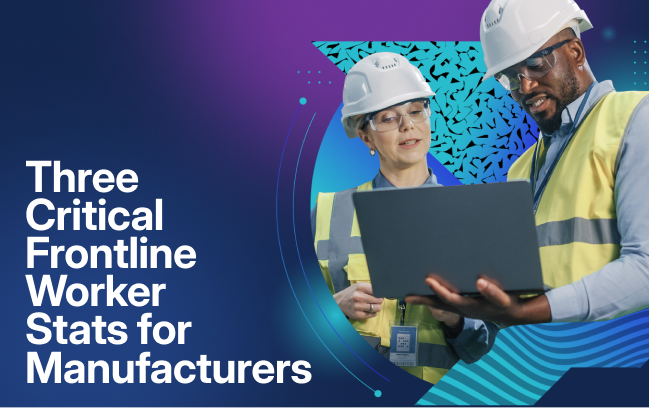August 22, 2023
3 Min. Read

If you’ve built a career in restaurant operations, you know how difficult it is to deliver a consistently great experience to customers and employees alike, especially across an enterprise that includes multiple locations. But when you invest in training and developing your people, everything else just clicks.
From supply shortages to high turnover and disgruntled guests, running a foodservice business requires juggling any number of unpredictable situations—all while communicating with hundreds or thousands of team members, maintaining high food quality standards, and remaining compliant with workplace and food safety regulations.
A learning management system or “LMS” is workplace learning software that makes it easy to deliver meaningful, people-first learning experiences throughout the employee lifecycle, from new hire training to ongoing professional development. And while great training brings obvious benefits to employees, businesses win in the long run as well. Keep reading to learn three ways an LMS helps restaurants simplify training, streamline operations, and boost business performance.
Reduce Restaurant Turnover and Retain Top Talent
One of the biggest benefits of an LMS is that it encourages employees to stay connected and engaged in learning opportunities from day one. Providing employees with a modern and intuitive digital learning platform complete with comprehensive content libraries communicates that the company is dedicated to their success. According to research from the Society of Human Resource Management (SHRM), positive onboarding experiences are correlated with higher levels of job satisfaction and organizational commitment among employees. Over time, 60% of organizations reported faster time to productivity, and over 50% reported improved retention rates and overall customer satisfaction.
For restaurants that want to attract and retain employees, an LMS that connects training with talent development tools is best. Core learning functionalities create a foundation for continuous learning, while talent development features like performance management tools and coaching help restaurants maximize each employee’s potential as they grow in their careers.
Deliver Training Wherever Employees Need It
In restaurant environments, it’s difficult for trainees and managers alike to step away from the physical job site to complete training on a computer; and most of the time, it simply doesn’t make sense.
An LMS can help restaurants streamline operations by making training available wherever and whenever employees need it. If they’re armed with the right training platform and content, employees can access video tutorials, how-tos, and more on their own, empowering them to resolve challenges within the flow of work and keep things running smoothly.
It’s important to select an LMS that facilitates both online and offline learning and enables training managers to connect both types of training into one holistic program. This helps restaurants optimize training so it’s tailored to specific pain points, operational needs, and roles.
A restaurant introducing new menu items, for example, can create a targeted training program that includes both online assessments and on-the-job training to teach employees how to prepare and serve the new offerings. This is especially critical for large restaurant enterprises which must ensure standardization in food preparation and quality across each location—even internationally. Over time, better training leads to stronger employees, happier customers, and bigger profits.
Move Training to the Cloud
It’s nearly impossible to manually track training for thousands of employees, especially across multiple locations. The task becomes even more daunting for enterprises which include franchises, as many franchises are individually owned and operated. For companies that rely on paper-based resources to complete training, it’s basically a guessing game as to how and when employees get trained—if at all—once materials leave corporate headquarters. Without an LMS, restaurants can easily fall out of compliance with local, state, or federal regulations and wind up in legal trouble.
An LMS replaces all the manual processes around training management and moves each resource securely to the cloud, making training much easier to distribute and track. It also eliminates the need for spreadsheets and other inefficient tracking methods, automatically registering each learner’s progress, activity, and preferences.
With the right LMS partner, you’ll also get access to professional off-the-shelf courses from industry-leading providers. Supplemental and even mandatory coursework in topics like workplace compliance, safety, and business skills give employees a well-rounded learning experience and knowledge they’ll carry throughout their careers.
Interested in learning more about how an LMS can help your business improve training, operations, and your bottom line? Connect with us.


